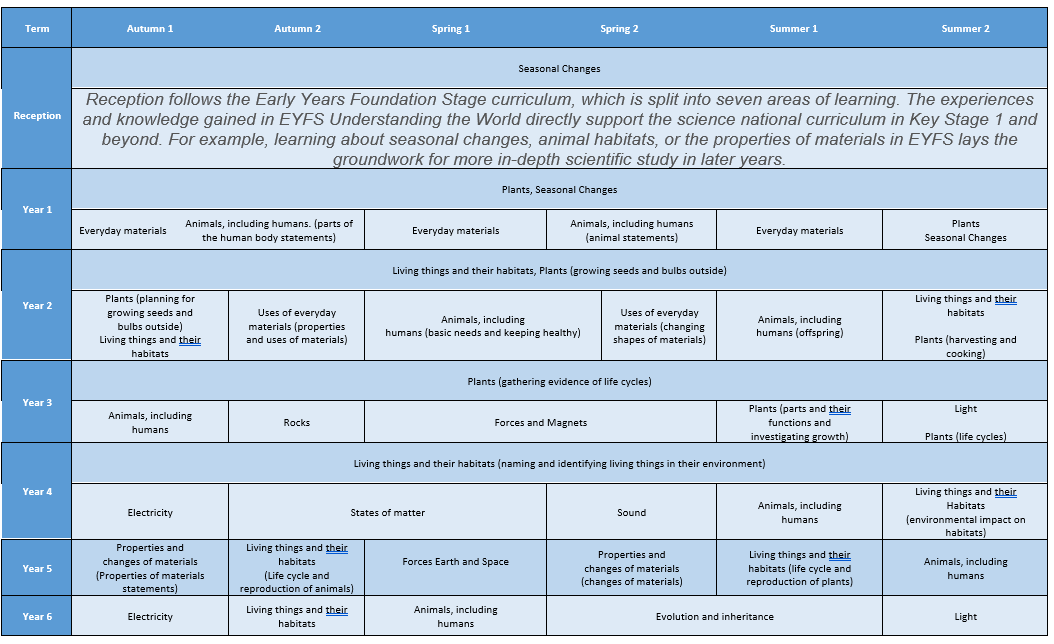Science
Intent statement
Science, at Primet Primary School, develops a sense of excitement, wonder and curiosity, as well as providing children with first hand experiences which help them to understand the world around them.
Children are encouraged to use age-appropriate scientific vocabulary to explain their understanding of different scientific concepts. Science provides children with a safe and stimulating environment in which they can explore and investigate. As children progress through school, they learn to work independently and collaboratively to pose questions, analyse causes and articulate their understanding of processes taking place.
We want to inspire our scientists of the future by developing their knowledge and understanding and highlighting the integral part that science plays in all our lives.
Implementation
Our science curriculum is designed to be broad, balanced, and coherently planned to enable progression in knowledge, skills, and understanding. We follow the National Curriculum for Science while enhancing it with enriching and relevant real-life contexts to engage and inspire pupils. The curriculum is enriched with practical investigations, hands-on experiments, and opportunities for outdoor learning to develop pupils' scientific enquiry skills.

Progression in Substantive Knowledge
This document shows (Progression in Knowledge) the links between the topics taught in different year groups, so that teachers can easily check pupils understanding of a science topic before teaching new content.
Progression in Working Scientifically/ Disciplinary Knowledge
This document (Progression in Working Scientifically KS1 and KS2) shows how the key learning for the Working Scientifically Skills build across the phases from Key Stage 1 to the end of Key Stage 2 to ensure progression in the teaching and learning of these skills across the school.
Oracy in Science
At Primet Primary School, oracy plays a vital role in our science curriculum. We encourage children to speak like scientists by using precise vocabulary to explain their observations, predictions, and conclusions. Through collaborative investigations, group discussions, and structured talk activities, pupils learn to ask scientific questions, justify their thinking, and evaluate their findings aloud. By verbalising their ideas and listening to others, children deepen their understanding of scientific concepts and develop the communication skills needed to explore the world around them with curiosity and confidence.
